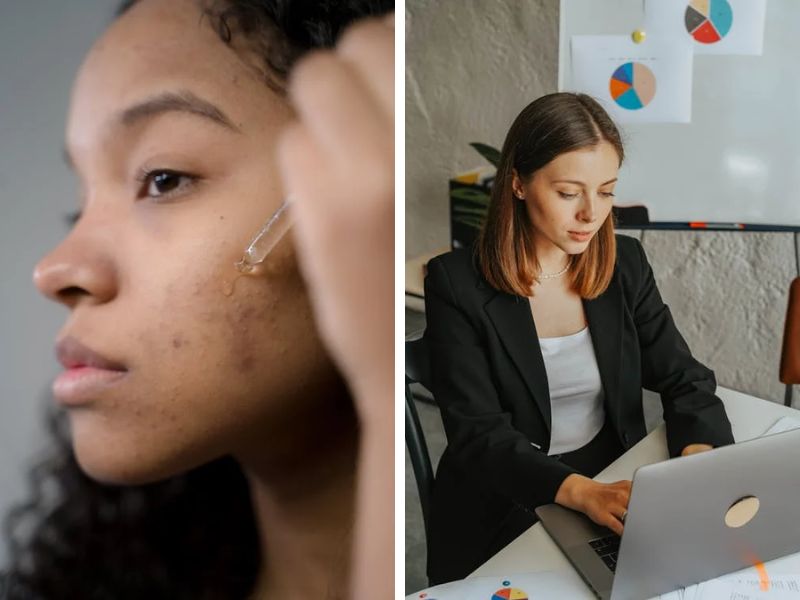It shouldn’t be considered unprofessional to have acne, but the reality is that it can be. In some workplaces, your appearance can adversely affect how you’re treated. It is common for workplaces to shame acne sufferers.
Researchers have found that people with acne feel self-conscious, embarrassed, and unattractive because of their skin. Some teens experience these feelings so intensely that they avoid joining sports teams, doing part-time jobs, or participating in class. Some people say that acne makes them feel on edge.

Image Credit: Pexels/Ron Lach & Pexels/olia danilevich
Colleagues’ Judgment Of Acne Causes Social Isolation And Mental Health Problems
Researchers have found that people with acne are less likely to succeed at work. People with facial acne scars were found to have a lower likelihood of success, confidence, health, happiness, and more insecurities and shyness when global respondents looked at pictures of the same person with or without acne scars.
Psychotherapist Shannon Garcia sees adult acne as a cause of social isolation and job insecurity. The difference between acne and adolescence makes it difficult for them to appear ‘adult’ or ‘mature’ at work. Their confidence has been affected when interviewing, meeting clients, and introducing themselves
Nearly half of over 200 employed women aged 25 to 45 reported difficulty concentrating at work due to their acne in a 2014 survey, and 12.3% reported missing work or school due to acne breakouts.

Image Credit: Pexels/Karolina Grabowska
How To Deal With Unsolicited Acne Advice
Rusanda recommends taking a step back if people comment about acne flare-ups and reminding yourself that it is not you. She said, “Realize they might be uninformed and educate them.”
Rather than pointing it out, Rusanda suggests using phrases like, “I think I already know what my skin is going through for now.” My product knowledge is excellent, and I’m working on it, so I don’t need your advice, but I appreciate it.